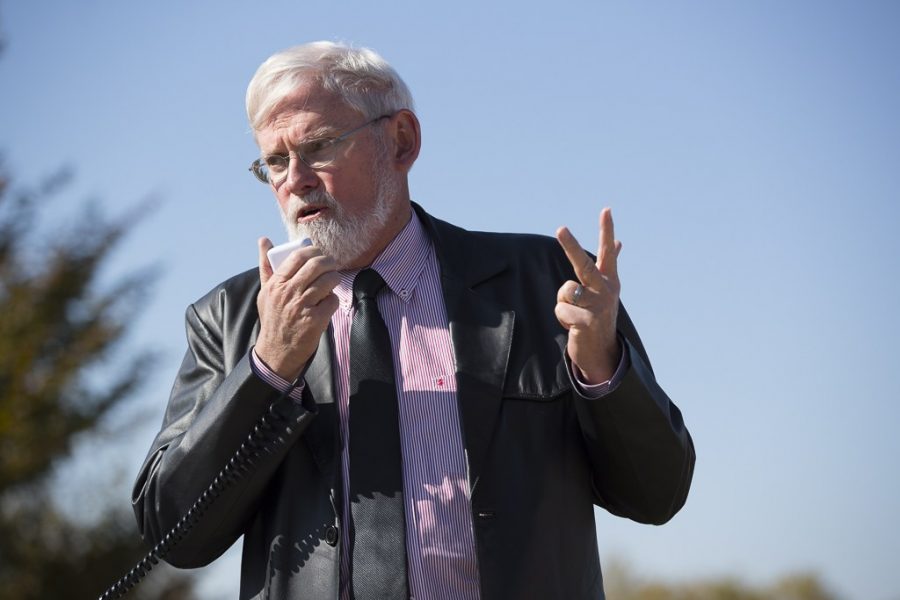The University of Utah’s response to cases of sexual assault has been in the spotlight in recent months, with a story in the Salt Lake Tribune about the U’s handling of Nisha Kavalam’s assault, a story published in the Daily Utah Chronicle about the school’s response to another student’s assault, and the administration’s comments on the suspension of the investigation into an alleged campus rape that occurred on Halloween. Some members of the campus community are signalling their dissatisfaction with the U’s reaction to the incidents.
 Loading...
Loading...
Early this morning, a group of students and employees calling themselves “SLC Against Sexual Assault” sent a letter to President Pershing demanding that the school improve its response to sexual assaults.
The efforts are headed by Jess Esplin and Mira Reynolds, both of whom are U alumni and employees, as well as Mahalia Lotz and Esther Aboussou, who are students at the U.
According to their letter, they believe “that the University of Utah administration has mishandled sexual assault on our campus and has promoted rape culture through the language that has been used by President Pershing and the campus police chief, as well as the actions and policies the administration has chosen to take on the issue.”
Referencing the statement made by campus police on their decision to suspend the investigation of Halloween’s alleged aggravated rape, the letter says, “While it is not explicitly stated, the subtext of Chief Brophy’s statement is that the survivor lied about the assault. […] It places the victim on trial rather than the perpetrator, which is a particularly harmful message to send to those who have been sexually assaulted.”
The letter also notes that suspending the case rather than closing it does not allow citizens or news outlets to request investigation documents. They ask that President Pershing instate a time limit on the length of time a sexual assault case can be suspended before it is closed.
President Pershing’s letter to the campus community after campus police announced their decision said, “We continue to look for ways to improve safety on our campus and welcome suggestions from all members of the university community.” SLC Against Sexual Assault said that “we intend to hold him to his word.”
In their letter, the group acknowledges previous efforts by the administration to address sexual assault, such as the It’s on Us campaign, and states their gratitude for the work campus police does to protect everyone on campus, but they feel concrete changes still need to be made at the U.
SLC Against Sexual Assault asks that the U hold discussions to ask students, faculty and staff what they believe should be done about sexual assault, saying, “We believe it is important that you ask us what we need before you conclude that the University’s policies and resources are adequate.”
Their letter says they want the U to increase training for students on the meaning of consent, increase funding and resources for counseling organizations on campus, and train all staff — including campus police — on how to better support survivors of sexual assault.
The bulk of the group’s suggestions deal with the process of reporting a sexual assault through Title IX, suggesting that the process become more transparent and be carried out in a shorter period of time. This includes compiling Title IX information into one website so that victims can more easily navigation the process.
They propose that the U “include statements on the transcripts of perpetrators found guilty by Title IX sexual assault investigations that note their status as a perpetrator so future schools can take appropriate precautions for their students.” They also request that the U make Title IX documents publicly available without redacting the names of perpetrators.
These types of changes are not common, but Esplin said that in their opinion, “it would be in the University’s best interest to do so — for the safety of its community and for transparency’s sake.”
Esplin said they’re aware that the U may already be working to implement some of their requests, but the group intends to pressure the U until changes are made.
SLC Against Sexual Assault published their letter online to collect student signatures for support.
“I want students’ safety protected,” said one comment on the letter. “In the context of an undergraduate’s life, justice delayed is justice denied.”
Other comments read, “How can I trust the institute that instills this kind of behavior?” and “Everyone deserves to feel safe on campus. As a woman, I rarely do.”
Reynolds said she felt personally driven to do something after police suspended the Halloween case. Reynolds researches military sexual trauma at the National Center for Veterans Studies and regularly interacts with survivors.
“I know many, too many, women personally who have been sexually assaulted in their lifetime, and the majority of them never reported simply because they thought no one could do anything about it,” said Reynolds. “That has always broken my heart, that survivors can feel so alone even on an institutional justice level.”
Reynolds acknowledged that students, faculty and staff are busy, but said, “For those who have time, I hope they reach out to administrators themselves either in support of our letter or with their own suggestions and solutions.”
Reynolds said, “I think the biggest thing students can do is just care.”
@EliseAbril
Note: In the interest of full disclosure, two employees of the Daily Utah Chronicle–Esther Aboussou and Casey Koldewyn–are involved in SLC Against Sexual Assault. They did not contribute to this article in any way.



